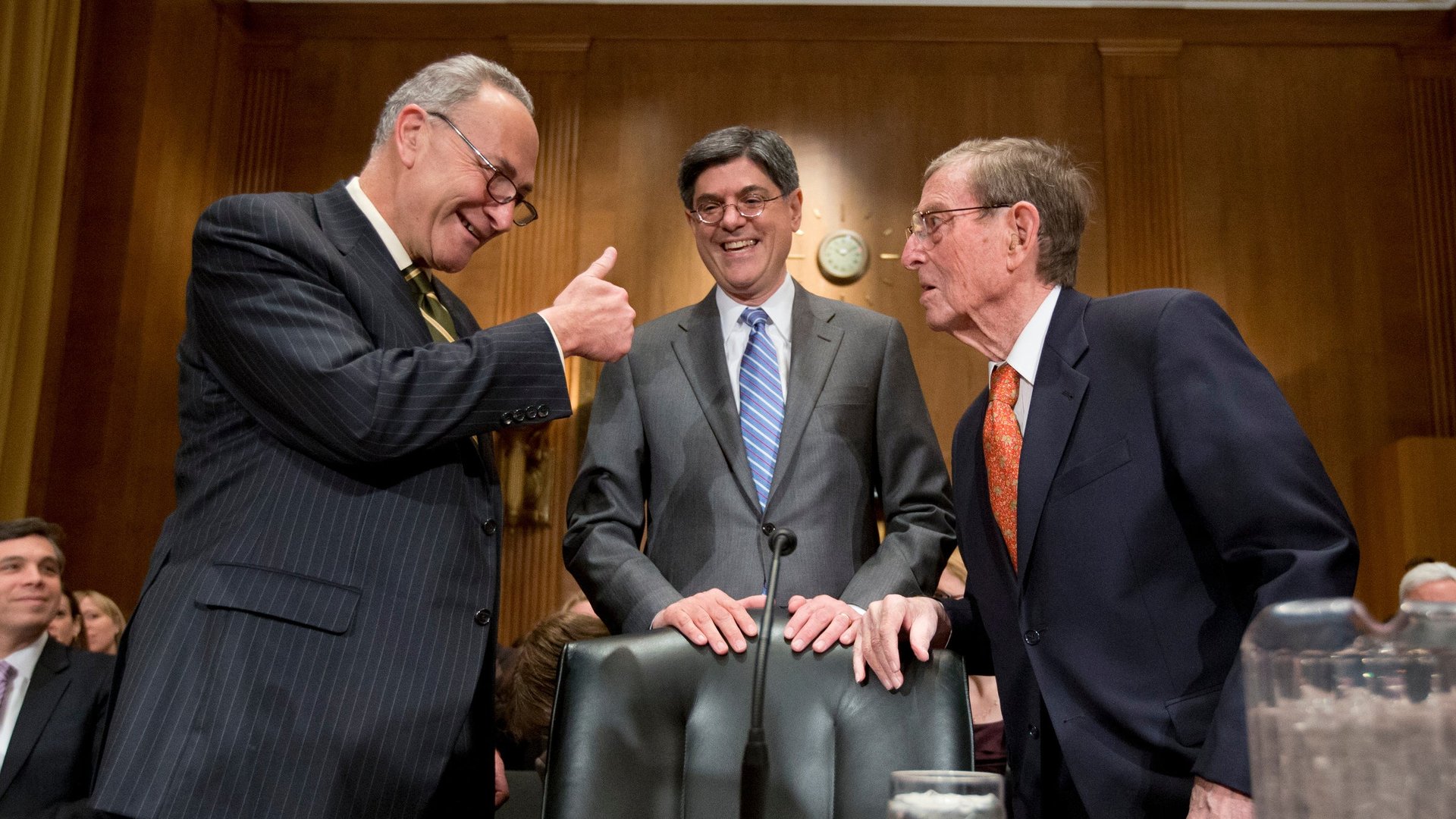What the next US Treasury Secretary should know about the offshore world
Have you ever put $56,000 overseas without knowing where it was?


Have you ever put $56,000 overseas without knowing where it was?
Jack Lew, the White House official nominated by President Obama to become Treasury Secretary, says that he has (video). He invested in a fund that his former employer, Citigroup, maintained in the Cayman Islands, where low taxes and loose disclosure rules make it easy to avoid scrutiny, and sold it for a loss in 2010. He says he knew it was an international fund and that the management was based in London, but he was unaware where the fund itself was located.
That’s a rather remarkable claim. Lew’s role at Citigroup from 2006 to 2008 was operational: He managed the books, the legal team, the technology, made sure that everyone was on the same page. That means he didn’t influence investment decisions during his stint at Citi, but it does imply an in-depth knowledge of the business at hand.
During Lew’s busy tenure, which ended in Citi’s federal bailout, he first worked at the bank’s wealth management unit, then became the chief operating officer of the bank’s Alternative Investments unit in 2008, where he helped manage two notable sets of transactions.
The first involved “Structured Investment Vehicles,” which allowed banks to make risky investments without carrying the risks on their balance sheets. In 2007, these SIVs were in trouble because many had used short-term loans to fund purchases of long-term mortgage-backed securities; as the US housing crisis became a reality, it became a losing business model. In an early preview of the years ahead, Treasury Secretary Hank Paulson would organize a bailout fund for the failing vehicles. Citi then brought its SIVs on to the company’s balance sheet to avoid potentially embarrassing failures, a process that added some $60 billion in liabilities to Lew’s division in his first two months on the job.
All seven of these SIVs were incorporated in the Cayman Islands.
The second set of transactions involved increasing investments in hedge funds managed by John Paulson (no relation to Hank), who famously profited by shorting the sub-prime bubble—while other hedge funds managed by Lew’s unit plummeted. Paulson made his bets through collateralized debt obligations (CDOs), themselves a form of structured investment vehicle. The most notorious of these, called Abacus, was at the heart of a lawsuit filed by its investors against Goldman Sachs, alleging that the bank had sold them a product it knew would fail.
Abacus was incorporated in the Cayman Islands, as were some 2,000 other CDOs; according to the International Monetary Fund, the Caymans held the largest amount of American mortgage-backed securities of any non-US country, more than $119 billion.
It’s hard to believe that Lew, trying to keep all the trains running on time through this mess, and doubtless aware of how much of his work involved special companies formed in the Cayman Islands, wouldn’t have wondered where his own personal investment in a Citi vehicle might end up. CNBC’s John Carney notes that Lew’s unit appeared to have subsidiaries in the Cayman Islands, Ireland, the Netherlands and Delaware—all jurisdictions with low taxes and limited financial scrutiny.
Republican critics of Barack Obama’s administration have gone straight to the hypocrisy charge, since his re-election campaign lambasted Mitt Romney’s extensive Cayman Island investments. A more pertinent criticism, however, would be that the administration hasn’t proposed restrictions on investments like Lew’s and Romney’s. (Although it has focused on reducing corporate tax avoidance abroad, while Republicans would just as soon dispense with the taxation of foreign profits altogether.)
When jurisdictions with low taxation and high levels of business secrecy combine with global capital flows, strange things happen. Financial companies set up funds there to avoid taxes and regulators. US multinationals hoard cash abroad, which can influence leveraged-buy outs and lead to big fights between investors and Apple. Companies like Google and GE pay no, or nearly no, federal taxes by employing strategies that move money around the globe, leading to falling corporate tax payments at a time of record corporate profits. Offshore money complicates financial rescues and leads to the round-tripping of money out of and back into emerging markets.
In short, offshore had better be on Lew’s radar, whether he’s trying to close the fiscal gap, improve financial regulation or pitch in on fixing Europe’s financial crisis. To help him, and our readers, Quartz is launching an occasional series on the ways that individuals and companies put offshore money to work for them.